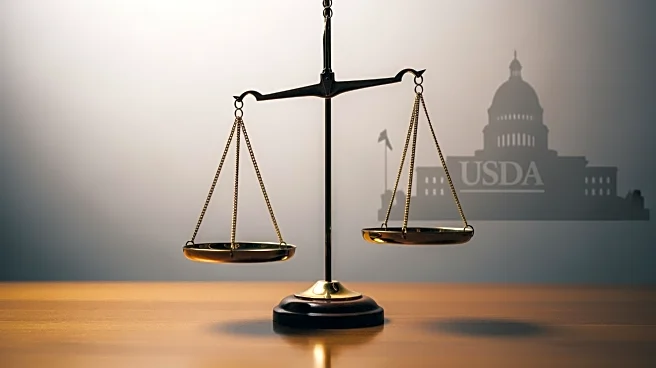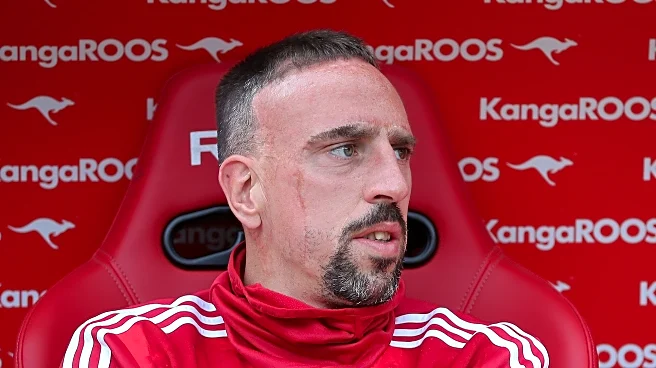What's Happening?
The Trump administration is appealing a federal judge's order requiring full funding of the Supplemental Nutrition Assistance Program (SNAP) for November. The U.S. Department of Agriculture (USDA) planned
to fund only part of the payments due to the ongoing government shutdown, leading to lawsuits from cities, religious groups, and nonprofits. These groups argue that the administration is failing its legal obligation to deliver full benefits. The administration contends that complying with the judge's order would cause more harm to the government than the potential starvation of millions of low-income Americans. The Justice Department has filed an emergency stay request with the Supreme Court, which has temporarily paused the order until the circuit court issues a judgment.
Why It's Important?
This legal battle over SNAP funding highlights the tension between executive prerogative and statutory obligations during a government shutdown. The administration's argument that spending appropriated funds causes greater harm than withholding them raises significant questions about the prioritization of government resources. The outcome of this case could set a precedent for how the government addresses statutory duties during fiscal standoffs, potentially affecting millions of Americans who rely on SNAP benefits. The decision could influence future government shutdown negotiations and the balance of power between the judiciary and executive branches.
What's Next?
The Supreme Court's temporary pause on the judge's order will remain in effect until the circuit court issues a judgment. If the administration's appeal succeeds, it could reinforce the executive's ability to prioritize administrative convenience over statutory obligations. This could lead to broader implications for how government resources are allocated during shutdowns. Stakeholders, including political leaders and advocacy groups, are likely to continue pressing for full SNAP funding, emphasizing the human impact of the administration's decision.
Beyond the Headlines
The administration's stance in this case reflects a broader ideological position that equates executive prerogative with public interest. If the courts uphold this argument, it could signal a shift in how statutory duties are enforced, potentially allowing the executive branch to claim 'irreparable harm' whenever it prefers not to act. This could undermine the separation of powers and prioritize political preference over legal obligations.









